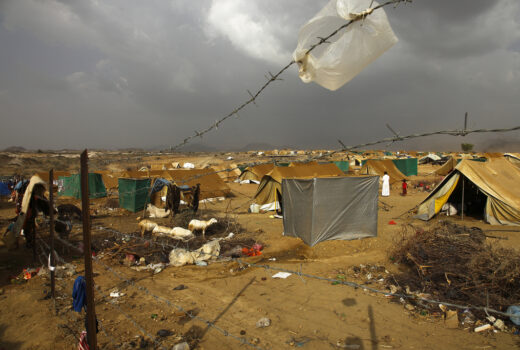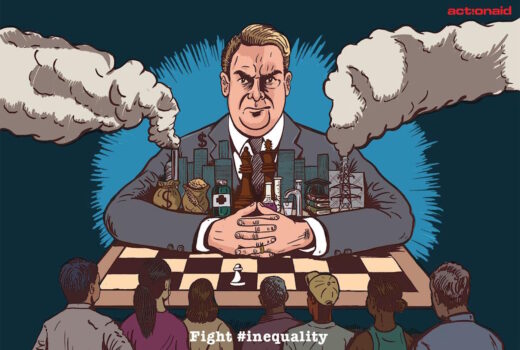Publications by: Guest content
Famine looms in four countries as aid system struggles to cope, experts warn
Article / 17th February 2017Famine is looming in four different countries, threatening unprecedented levels of hunger and a global crisis that is already stretching the aid and humanitarian system like never before, experts and insiders warn.
Money has been flowing out of developing countries for over a decade: UN report
Blog / 17th February 2017The latest set of disturbing data from the UN shows that finance has been flowing out of developing countries at least since 2004, with sobering implications explains Jesse Griffiths from Eurodad.
The real circular economy
Report / 6th February 2017A real circular economy would expand the definition of the circular economy to one where its operating system is regenerative not only towards nature, but also people; meaning wealth is equitably circulated and shared. A new report by Sharon Ede explains how relocalising production with not-for-profit business models helps build resilient and prosperous societies.
10 economic myths we need to junk
Article / 6th February 2017Since the financial crash of 2008, followers of mainstream economic dogma haven't changed their tune much. But an ever-growing legion of dissenting economists are challenging these cherished myths, as summarised by the New Internationalist in a classic edition of the magazine from December 2015.
The rise of the robot: Dispelling the myth
Article / 27th January 2017We need to disavow ourselves of our misplaced trust in robotisation, and instead focus our energies on creating a truly fair and sustainable economy. The leisure society will only be achieved if we learn to live more locally within our planetary means - for there is enough stuff to go around already, if only we shared it out better, argues Rupert Read.
A viable billionaire tax?
Report / 27th January 2017A new paper makes the case that a global billionaire tax is ethical, good for growth, and could solve a lot of the world’s problems - and what’s more, it’s politically viable, explains Josh Hoxie.
The great British make off: how a new materialism can give us back control
Blog / 25th January 2017The New Economics Foundation has long made the case for a richer relationship with 'stuff' that can help turn the tables on our abusive consumer culture. The good news is that a new form of materialism is already emerging; everywhere people are beginning to make, do, share and get involved, writes Ruth Potts.
One-percenters, pay your taxes
Article / 20th January 2017Is there anything that the world's corporations can do about the scourge of inequality? The answer is yes, but it means rewriting the economic rules - for the only sustainable prosperity is shared prosperity, writes Joseph E. Stiglitz.
Aid in reverse: how poor countries develop rich countries
Article / 20th January 2017New research on global financial flows shows that the usual development narrative has it backwards; aid is effectively flowing in reverse. And some of the very countries that so love to tout their foreign aid contributions are the ones enabling mass theft from developing countries, argues Jason Hickel.
People’s power vs. rising inequality: Demanding change locally, nationally, & globally
Report / 19th January 2017As the world’s media showcase Donald Trump and the World Economic Forum, ActionAid urge us to stay focused on the presence of social movements that pose the real solution to rising inequality. Only people’s power, united across borders, can reverse the hoarding of power and wealth by a tiny elite, re-democratizing our politics, our societies, and our economies. The following extract is taken from ActionAid's latest brief [pdf] that summarises the publications from its Inequality Series.





